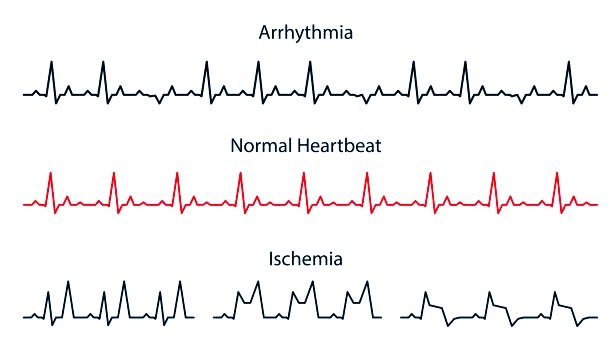Irregular Heartbeats: Causes, Symptoms, and Treatment
Learn about irregular heartbeats(Arrhythmias): It's causes, symptoms, and treatment. Discover essential information to understand and manage this condition in our comprehensive guide.


Irregular heartbeats, also known as arrhythmias, are abnormal rhythms of the heart that can cause a variety of symptoms and potentially lead to serious health complications. In this article, we will explore the causes, symptoms, and treatment options for irregular heartbeats.
Causes of Irregular Heartbeats (Arrhythmias)
There are several factors that can contribute to the development of arrhythmias:
Heart disease: Conditions such as coronary artery disease, heart attack, or heart failure can disrupt the normal electrical pathways in the heart.
High blood pressure: Elevated blood pressure can strain the heart and disrupt its rhythm.
Thyroid problems: An overactive or underactive thyroid gland can affect the heart's electrical system.
Stress and anxiety: Emotional stress and anxiety can trigger irregular heart rhythms.
Substance abuse: Excessive alcohol consumption, smoking, or drug abuse can disrupt the heart's normal functioning.
Symptoms of Irregular Heartbeats (Arrhythmias)
The symptoms of arrhythmias can vary depending on the type and severity of the condition. Common symptoms include:
Palpitations: Sensations of a racing, pounding, or irregular heartbeat.
Dizziness or lightheadedness: Feeling faint or dizzy.
Shortness of breath: Difficulty breathing or catching your breath.
Chest pain: Discomfort or pain in the chest.
Fatigue: Unexplained tiredness or lack of energy.
It is important to note that some arrhythmias may not cause any noticeable symptoms and are only detected during medical tests or examinations.
Treatment of Irregular Heartbeats (Arrhythmias)
The treatment options for irregular heartbeats depend on the underlying cause and the severity of the condition. Here are some common approaches:
Medications: Anti-arrhythmic drugs can help regulate the heart's rhythm and reduce the risk of complications.
Cardioversion: This procedure uses electrical shocks to restore a normal heart rhythm.
Ablation therapy: A catheter is used to destroy the abnormal heart tissue causing the arrhythmia.
Pacemaker: A small device implanted under the skin helps regulate the heart's rhythm.
Implantable cardioverter-defibrillator (ICD): This device monitors the heart's rhythm and delivers electrical shocks if a life-threatening arrhythmia is detected.
Lifestyle changes can also play a significant role in managing arrhythmias. These may include reducing stress, maintaining a healthy weight, exercising regularly, avoiding excessive alcohol or caffeine consumption, and quitting smoking.
If you experience symptoms of an irregular heartbeat, it is important to seek medical attention promptly. A healthcare professional can diagnose the underlying cause and recommend appropriate treatment options to manage the condition effectively.
In conclusion, irregular heartbeats (arrhythmias) can be caused by various factors, including heart disease, high blood pressure, thyroid problems, stress, and substance abuse. The symptoms can range from palpitations and dizziness to chest pain and fatigue. Treatment options may include medications, cardioversion, ablation therapy, pacemakers, and implantable cardioverter-defibrillators. Lifestyle changes can also help in managing arrhythmias effectively. If you suspect an irregular heartbeat, consult a healthcare professional for proper diagnosis and treatment.
